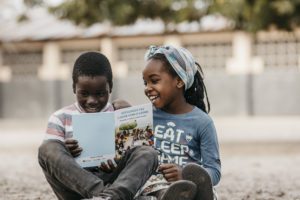As we witness “the worst shock to global education and learning in recorded history,” resulting from the Covid-19 pandemic, what the World Bank defines as Learning Poverty continues to go from crisis to catastrophe. Resulting from school closures and absenteeism, a lack of teachers and quality learning materials, that most basic of educational quality indicators: Can children read and write? – has precipitously worsened. Today, 70% of ten-year-olds in low- and middle-income countries cannot read, even after years of schooling.
The acquisition of literacy and numeracy skills is so critical to school success that they are often referred to as Foundational Learning (FL). They are gateway skills – with them the door is opened to an exciting world of learning, without them the door is just as easily slammed shut on opportunity. The fact is, there is no leapfrogging over Foundational Learning, without it, the world’s Sustainable Development Goal (SDG) of “all children completing 12 years of quality primary and secondary education” will never be realized and instead we’ll continue to witness the inevitable: students drop out of school, unable to read to learn.
Books and Teachers Matter
Learning poverty is measured as “the share of children who cannot read a simple text with comprehension by age 10”, but no child can read a text unless text is available and accessible. As with the development of any skill, practice is also required. The ability to read with comprehension and fluency requires reading many pages of text all year, every year. The primary reason for education and providing reading materials is to help children become proficient lifelong learners with content knowledge and thinking skills, who learn content from teachers and books. If we are to better address Learning Poverty and prevent COVID from taking a permanent toll on this generation of students, concrete, feasible learning interventions are urgently needed. And on this the annual celebration of International Literacy Day it is critical to once again emphasize the urgent need for qualified teachers and relevant quality textbooks and other reading materials in languages children know, to be at the core of these programs.
It is with that goal in mind that CODE joins our literacy partners around the world to recommit to the Global Book Alliance’s Books for Every Child: A Global Pledge.



